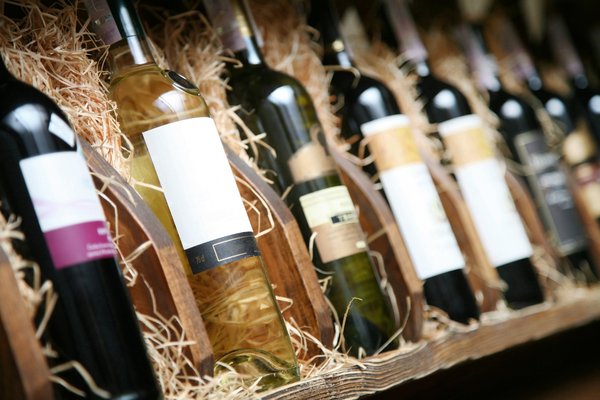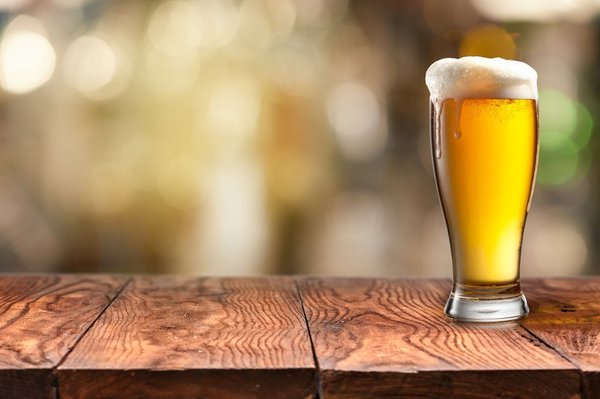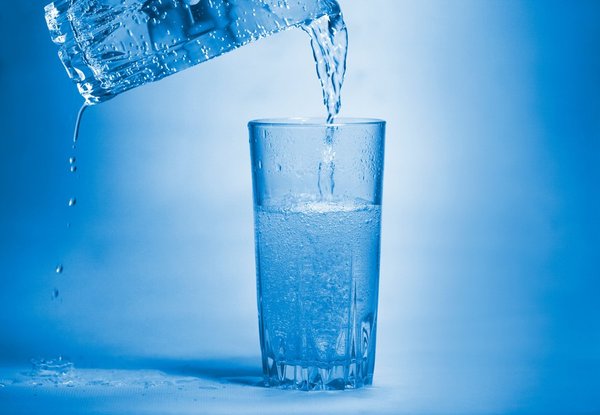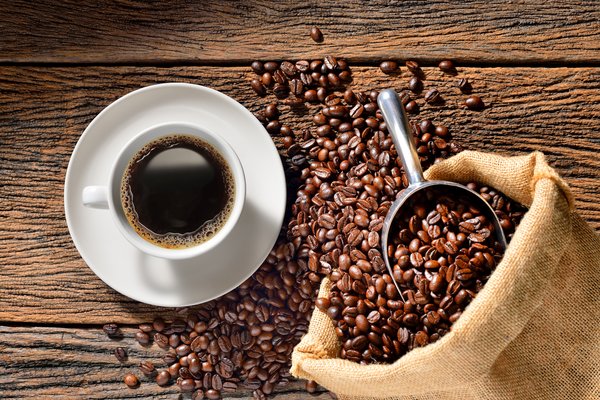Alcohol was discovered not long after the dawn of civilization. Given its age, the global alcohol industry is hardly a fast-growing investment. However, through good and bad economic times, alcohol stocks enjoy steady rates of consumer consumption.
Alcohol stocks are publicly traded companies that make money primarily from selling beer, wine, spirits, and other alcoholic drinks.

The alcohol industry, as well as the related beer and wine industries, is dominated by massive conglomerates. Since most small-batch craft producers are privately owned, the alcohol sector is mostly devoid of small, fast-growing, publicly traded companies. Nevertheless, alcohol stocks are worth considering for investors seeking stable growth and dividend income over time.
Top alcohol stocks for 2025
Eight top alcohol stocks for 2025
Alcohol is a big business. It overlaps the water utility segment of the economy a bit because the alcohol-distilling process consumes a significant amount of local water supplies. Alcohol production is also adjacent to wheat, grains, and farming and agriculture, so there are stocks to consider in those areas as well.
But when it comes to slow-and-steady beverage businesses, alcohol tends to enjoy stable sales, even when general consumer spending takes a hit elsewhere. Sometimes, alcohol sales even increase when the economy takes a turn for the worse, as they did during the COVID-19 pandemic and the Great Recession of 2008-09.
There is some overlap with the beer-making business, too. For example, Budweiser parent AB InBev (BUD -0.48%) and smaller peers Constellation Brands (STZ 0.52%), which makes Corona and Modelo, as well as Boston Beer Company (SAM 3.35%), which produces Samuel Adams, all own brands that lie outside their core brewing operations.
However, the following eight stocks are known for their top-shelf alcohol offerings.
| Name and ticker | Market cap | Dividend yield | Industry |
|---|---|---|---|
| LVMH Moët Hennessy - Louis Vuitton (OTC:LVMUY) | $331 billion | 2.14% | Textiles, Apparel and Luxury Goods |
| Diageo Plc (NYSE:DEO) | $53 billion | 1.69% | Beverages |
| Pernod Ricard (OTC:PDRDF) | $25 billion | 5.32% | Beverages |
| Brown-Forman (NYSE:BF.A) | $13 billion | 3.30% | Beverages |
| Rémy Cointreau (OTC:REMY.Y) | $3 billion | 3.25% | Beverages |
| Anheuser-Busch InBev/NV (NYSE:BUD) | $103 billion | 1.90% | Beverages |
| Constellation Brands (NYSE:STZ) | $25 billion | 2.84% | Beverages |
| Molson Coors Beverage (NYSE:TAP) | $9 billion | 4.06% | Beverages |
Companies 1 - 4
1. LVMH Moët Hennessy Louis Vuitton
France's LVMH Moët Hennessy Louis Vuitton is the premier name in all things luxury goods. But champagne and other ultra-high-end spirits feature prominently in this diverse portfolio of high fashion. In fact, the company's name says as much. LVMH owns champagne house Moët Chandon, cognac maker Hennessy, and other brands, including Dom Pérignon, Krug, Veuve Clicquot, and more.
LVMH -- whose CEO Bernard Arnault was one of the richest people in the world as of early 2025 -- has been a winner on the stock market historically. Its diversified portfolio of luxury goods, which includes fashion and leather goods, jewelry and watches, wines and spirits, and perfumes and cosmetics, has delivered steady growth, though recently the company has struggled due to challenges in China.
Still, this is a long-term growth business since its fashion collection is highly sought after worldwide, and it's been able to grow through acquisitions, taking over Tiffany in 2021, for example. LVMH also pays a modest dividend to complement the steady expansion of its portfolio of fashion, champagne, and other luxury goods.
2. Diageo
Diageo is the U.K.'s largest alcohol producer. It's also one of the world's largest businesses that is almost solely devoted to distilled products. Although it has a beer business -- Irish brewer Guinness is one of its subsidiaries -- Scotch whisky is the real breadwinner here. Diageo is the parent of Johnnie Walker, Buchanan's, J&B, and Lagavulin. Other spirits brands outside its ample whisky business include Smirnoff, Baileys, and Tanqueray.
It's an enviable stable of alcohol names, and Diageo has been able to coax steady growth from its portfolio for years. It's also a highly profitable operation, historically generating an operating profit margin that tops 30% annually, with an operating margin of 29.6% in 2024, though reported revenue fell due to challenges in 2024. Nevertheless, due to its exceptional financials, Diageo is a top dividend income stock to consider from the alcohol stock universe.
3. Pernod Ricard
Pernod Ricard is another house of alcohol brands tailored to wide-ranging tastes. The French company owns Pernod and Ricard, two anise-flavored liqueurs from which the company's name is derived. It also owns Absolut vodka, Beefeater gin, Chivas Regal Scotch whisky, Jameson Irish whiskey, Kahlua, Malibu, and many other labels.
Much like the other brands on this list, Pernod Ricard isn't the fastest-growing business around. Revenue recovered from a small pullback in 2020 when sales briefly dipped during the start of the COVID-19 pandemic, but it reported an organic sales decline of 4% through the first three quarters to 8.5 billion euros, or 5% on a reported basis, which does not adjust for currency. The company also has enviable operating profit margins nearing the 30% range.
4. Brown-Forman
While Kentucky-based Brown-Forman had its share of difficulties during the start of the COVID-19 pandemic, the leading maker of Tennessee and Kentucky whiskeys has enjoyed an overall increase in sales over the last five years. However, the company has struggled more recently and said at the beginning of 2025 that it would cut 12% of the global workforce due to a general slowdown in the spirits industry and the threat of 50% tariffs imposed by the European Union.
Brown-Forman's whiskey brands include Jack Daniel's, Woodford Reserve, and Old Forester. It also owns a few Scotch whisky and tequila labels, Chambord liqueur, some wineries, and more. It generates operating margins well above 30% and uses them to reinvest in organic growth and to make the occasional acquisition. It also pays a small dividend for investors looking for a little income along the way.
Companies 5 - 8
5. Rémy Cointreau
Fifth on our list of alcohol stocks is another French company, Rémy Cointreau, best known for its cognacs, Louis XIII and Rémy Martin, and its orange-flavored liqueur Cointreau. A number of other distilled products, such as gin, rum, and a champagne house, round out the company's offerings.
Remy Cointreau has struggled of late, reporting an organic sales decline of 18% in fiscal 2025 as demand has been sluggish in China, in part due to an increase in import duties, and retailers in the U.S. have pulled back on high-end products amid a shift in demand and inflationary pressure. The company is working on fostering growth in its portfolio by elevating its brands' profiles as premium choices, and it expects to return to organic sales growth in the second half of fiscal 2026.
6. Anheuser-Busch/InBev
Anheuser-Busch InBev is one of the biggest alcohol companies in the world. It was formed by the merger of Anheuser-Busch, the Budweiser parent, and InBev, the Belgian owner of beer brands like Stella Artois, Beck's, and liquor brands like Skol.
In 2016, AB InBev got even bigger with its acquisition of SAB Miller, though the beer maker was forced to divest several brands for the deal to pass regulatory muster.
Today, AB InBev is massive, but it is still subject to the larger trends in the alcohol industry, including the fact that the young adult generation seems to be drinking less than their predecessors.
In the second quarter of 2025, organic volume sales were down 1.9%, though the company has seen success with its "megabrands" such as Corona, which continues to gain market share around the world.
7. Constellation Brands
Constellation Brands is best known as the domestic seller of Corona, Modelo, and other Grupo Modelo brands as part of a 2013 deal with AB InBev after regulators forced AB InBev to sell it to permit its acquisition of Grupo Modelo.
As a result, Constellation Brands' stock surged over a five-year period following the deal, though its growth has since faded.
In addition to the beer business, Constellation also owns liquor brands like High West Whiskey and has been selling off its wine business in recent years.
The stock has recently attracted the interest of Warren Buffett's Berkshire Hathaway (BRK.A -0.76%)(BRK.B -0.68%), which invested in the stock.
8. Molson Coors
Molson Coors is a pure-play beer maker known for its namesake brands and the Miller family of beers. Additionally, it owns Blue Moon, Foster's, Grolsch, and Peroni, among others.
The company acquired the Miller brands when SAB Miller divested them to combine with AB InBev.
Like other beer makers and alcohol stocks, Molson Coors has struggled with the macroeconomic climate and broader trends in beer consumption.
As of Q2 2025, the company expected revenue to decline 3%-4% for the year. While it also enjoys double-digit operating margins, the business is likely to struggle until the macroeconomic climate improves.
Related investing topics
Pros and cons of investing in alcohol stocks
Alcohol production is an age-old business, and the alcohol industry is far from the fastest-growing segment of the stock market. The investable portion of the industry is dominated by a few giants that are slow-and-steady stalwarts. However, for investors looking to generate some income and enjoy stable returns over time, alcohol stocks and their beer stock cousins are worth a look. Let's take a look at some pros and cons of investing in alcohol stocks.
Pros:
- Alcohol stocks tend to generate wide profit margins.
- Alcohol has proven itself to be a timeless product.
- Most alcohol stocks pay dividends.
Cons:
- Alcohol companies have been struggling with demand and pressure related to tariffs.
- The category is mature. Even in a better macro environment, overall growth is likely to be modest.
- There is some evidence that alcohol consumption is declining in the U.S.
FAQ
Alcohol stocks FAQ
What are the best alcohol stocks to buy?
Some of the best alcohol stocks to buy and hold are big companies that manage a stable of diversified brands. Top names include LVMH Moët Hennessy Louis Vuitton, Diageo, Pernod Ricard, Brown-Forman, and Rémy Cointreau.
Can you buy stock in alcohol?
Yes, a number of companies listed above are top players in the alcohol industry. Also, consider companies involved in the production of wine and beer, which also have publicly traded stocks.
Is it a good idea to invest in alcohol?
Alcohol is an old industry and doesn't offer the highest growth rates around. But for investors looking for more slow-and-steady growth and dividends, alcohol stocks might be a good idea to buy as part of a well-diversified portfolio.
Does alcohol have stocks?
Yes, a number of alcohol companies (listed above) are publicly traded. Some stocks yield investment exposure to beer and wine, too.
Do alcohol stocks do well in a recession?
Yes, alcohol stocks tend to do well in recessions. Although you might think of alcohol as a discretionary item, consumers have bought more of it in tough economic times.
Which is the best brand for alcohol?
While the best alcohol brand is subjective, the best-performing major alcohol stock of the last decade is LVMH. Though most of its business comes from other categories, it is a significant player in wines and spirits.











